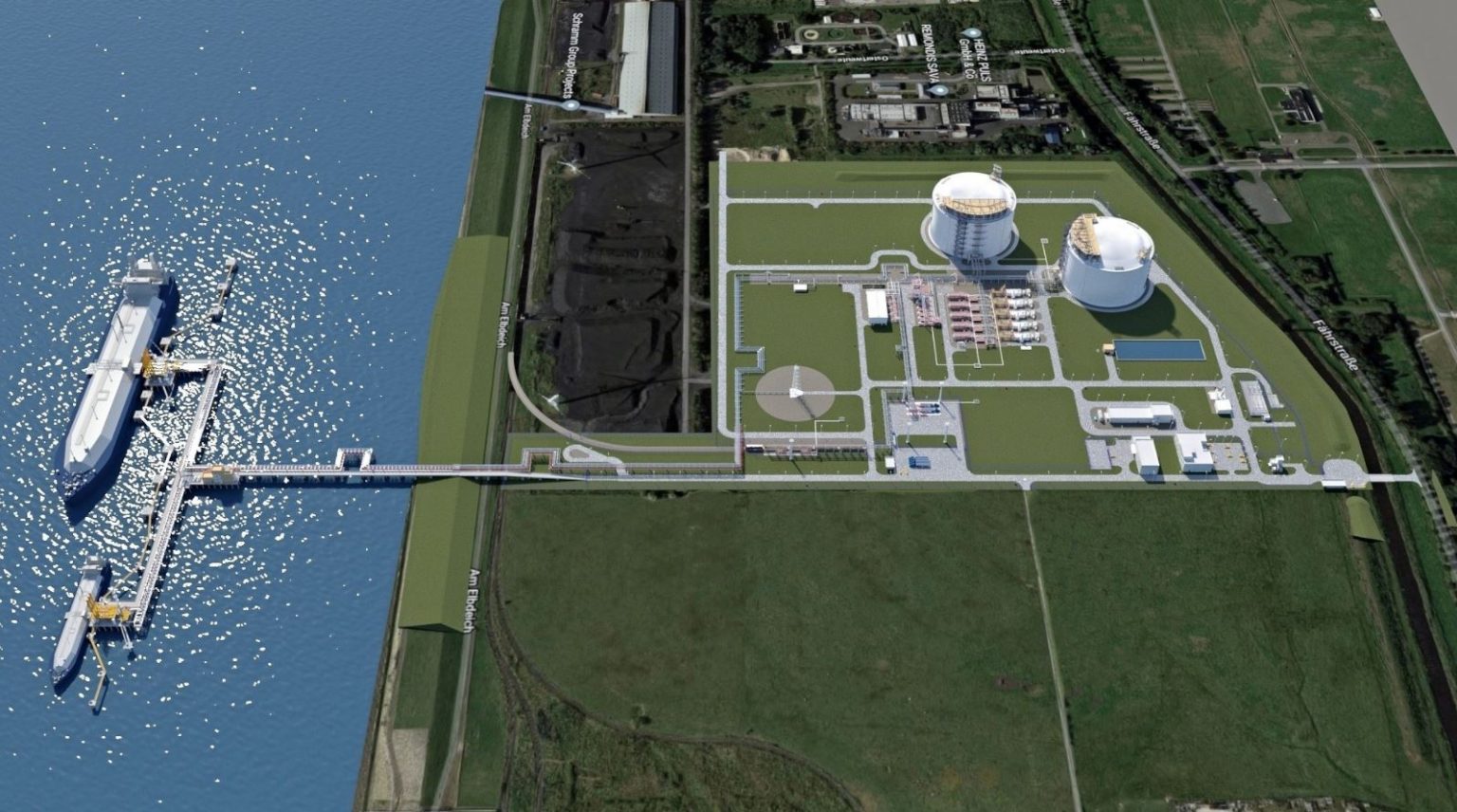German LNG Terminal, the developer of the Brunsbuettel import project, said on Thursday it will file an application for planning permission by the end of June.
The joint venture, owned by Dutch Gasunie and Vopak, and Germany’s Oiltanking, intends to submit the application to the office for transport planning approval in Kiel.
Moreover, the application would cover, among other things, a jetty with two berthing facilities for ships up to Q-Max size, as well as facilities for distributing LNG by trucks, rail tank cars and smaller ships, the firm said.
The documents submitted will also serve as the basis for obtaining permission for the planned terminal at the Brunsbuettel site.
German LNG Terminal is looking to build a regasification facility with a capacity of up to 8 bcm per year with two 165,000-cbm storage tanks.
“After the EU Commission’s approval of exemption a month ago, this is another important
milestone for the overall project,” said Rolf Brouwer, managing director of German LNG
Terminal.
“It is not only an important step towards realising the LNG terminal in
Brunsbuettel, but also towards building infrastructure for supplying increasing volumes of
climate-neutral energy sources and fuels,” he said.
Finalizing binding capacity deals
The joint venture told LNG Prime earlier this month it had expected to sign several binding capacity deals in the coming period.
Germany’s RWE has already expressed interest to take a large part of the terminal’s capacity as well as to import hydrogen from Australia to Brunsbuettel.
In addition, German LNG Terminal signed two agreements for long-term capacity back in 2019 with Switzerland’s Axpo and an unidentified “global LNG player.”
Prior to reaching a final investment decision, German LNG Terminal has to secure construction permits for the Brunsbuettel site located in the greater industrial and economic zone of Hamburg.
“Essentially, we will go through two approval processes: a planning approval process and an immission control approval process in accordance with the German Federal Immission Control Act (BImSchG) for facilities on land as well as for waterside facilities,” a spokeswoman said earlier this month.

